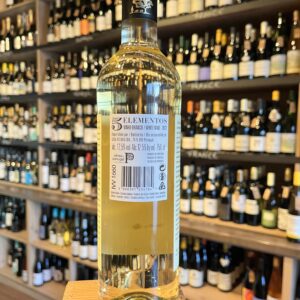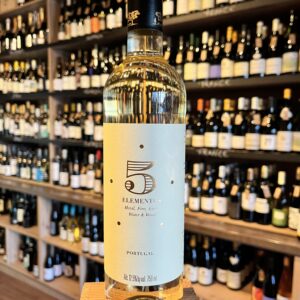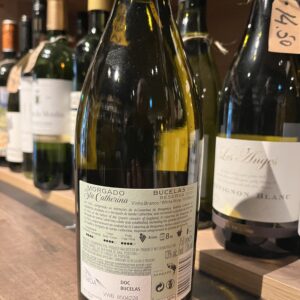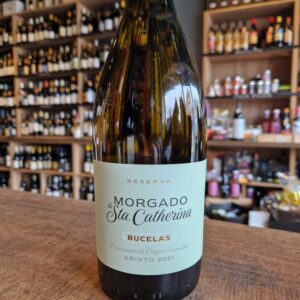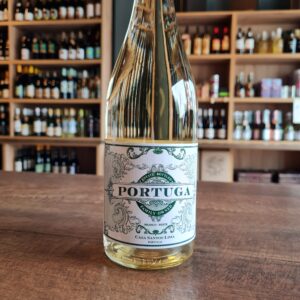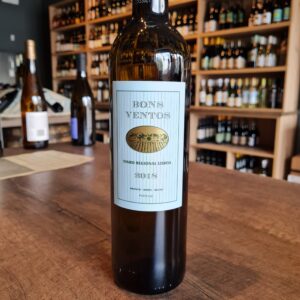-
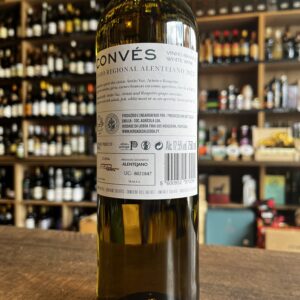
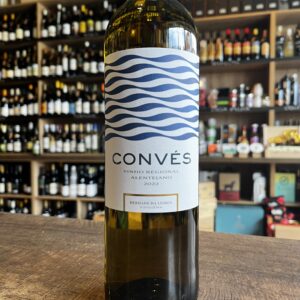 Since 2011 Herdad da Lisboa(name of the Qunta), has been the place of the Cardoso Family in Vidigueira, in the Baixo Alentejo sub-region. A place where the modernity of the winery intersects with the tradition of the Alentejo cellars and where the diversity of viticulture is added to the permanent evolution of oenology. The Serra do Mendro, located to the north of Vidigueira, creates a natural barrier that favors the retention of fresh winds from the Atlantic Ocean, causing greater rainfall and large thermal amplitudes. Cold mornings and nights and hot days promote a balanced maturation of the grapes, preserving their freshness and natural acidity. The gentle slopes and elevations of the landscape, as well as the clay-schist soils bring minerality, freshness and diversity to the wines of Herdade da Lisboa. The approximately 100 hectares of vineyards at Herdade da Lisboa express the producer's deep respect for nature, integrating several sustainable practices, which allow optimizing the consumption of essential resources, such as water and energy. Natural grass, mechanical weed cutting to avoid the use of herbicides, close surveillance of pests, use of solar panels, its own weather station and probes for measuring soil humidity and temperature are some of the techniques and equipment used. It goes very well with fish and seafood dishes, salads or Asian dishes.
Since 2011 Herdad da Lisboa(name of the Qunta), has been the place of the Cardoso Family in Vidigueira, in the Baixo Alentejo sub-region. A place where the modernity of the winery intersects with the tradition of the Alentejo cellars and where the diversity of viticulture is added to the permanent evolution of oenology. The Serra do Mendro, located to the north of Vidigueira, creates a natural barrier that favors the retention of fresh winds from the Atlantic Ocean, causing greater rainfall and large thermal amplitudes. Cold mornings and nights and hot days promote a balanced maturation of the grapes, preserving their freshness and natural acidity. The gentle slopes and elevations of the landscape, as well as the clay-schist soils bring minerality, freshness and diversity to the wines of Herdade da Lisboa. The approximately 100 hectares of vineyards at Herdade da Lisboa express the producer's deep respect for nature, integrating several sustainable practices, which allow optimizing the consumption of essential resources, such as water and energy. Natural grass, mechanical weed cutting to avoid the use of herbicides, close surveillance of pests, use of solar panels, its own weather station and probes for measuring soil humidity and temperature are some of the techniques and equipment used. It goes very well with fish and seafood dishes, salads or Asian dishes. -
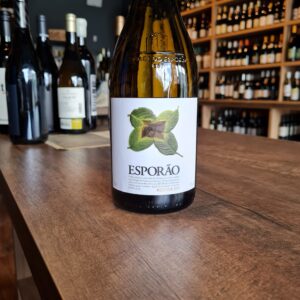 A classic wine(Organic) obtained from grapes grown at Herdade do Esporão, which showcases the consistency and rich character typical of the best Alentejo wines. It Is from vineyards that on average are about 18 years old, the soils are a mixture of granite and schist with clay and loam, and an integrated pest control and a sustainable viticultural approach is employed. Hand-harvested grapes are de-stemmed, then left with skin contact for six hours before chilling and fermentation, 50% in tank with fine lees ageing and 50% in barriques where it is aged for six months. French and American oak is used, a third new, and the wine does not undergo a malolactic fermentation. Aromas of ripe tangerine, honey and apricot with subtle notes of toast and smoke from the barrel fermentation. The palate is complex, creamy, showing ripe fruit flavours and mineral notes with a long, fresh finish.
A classic wine(Organic) obtained from grapes grown at Herdade do Esporão, which showcases the consistency and rich character typical of the best Alentejo wines. It Is from vineyards that on average are about 18 years old, the soils are a mixture of granite and schist with clay and loam, and an integrated pest control and a sustainable viticultural approach is employed. Hand-harvested grapes are de-stemmed, then left with skin contact for six hours before chilling and fermentation, 50% in tank with fine lees ageing and 50% in barriques where it is aged for six months. French and American oak is used, a third new, and the wine does not undergo a malolactic fermentation. Aromas of ripe tangerine, honey and apricot with subtle notes of toast and smoke from the barrel fermentation. The palate is complex, creamy, showing ripe fruit flavours and mineral notes with a long, fresh finish. -
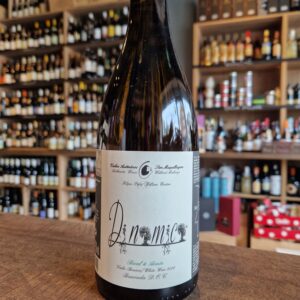 Filipa Pato and husband, William Wouters have created an expressive range of wines representing the native grape varietals of the Barriada region. Their philosophy is simple: "create authentic wines without make-up to express the true nature of the vineyards they come from". Bairrada is a coastal DOC which borders Vinho Verde, Dão and Lisboa. It has mild and wet winters and hot windy summers. The climatic thermal range, brought about by the Atlantic influence, brings high acidity and freshness to the grapes here. Filipa and William practice biodynamic viticulture and are undergoing conversion to organic certification. The wine is unfined. Drink with sheep and goats cheese, dressed salads, and delicate poultry dishes.
Filipa Pato and husband, William Wouters have created an expressive range of wines representing the native grape varietals of the Barriada region. Their philosophy is simple: "create authentic wines without make-up to express the true nature of the vineyards they come from". Bairrada is a coastal DOC which borders Vinho Verde, Dão and Lisboa. It has mild and wet winters and hot windy summers. The climatic thermal range, brought about by the Atlantic influence, brings high acidity and freshness to the grapes here. Filipa and William practice biodynamic viticulture and are undergoing conversion to organic certification. The wine is unfined. Drink with sheep and goats cheese, dressed salads, and delicate poultry dishes. -
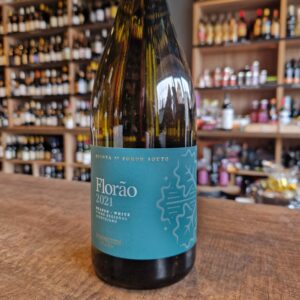 Quinta da Fonte Souto is in the Portalegre subregion of the Alto Alentejo in southern Portugal. Close to the São Mamede range (1,025 metres), the property benefits from the area’s altitude with its cooler microclimate in sharp contrast to the Alentejo region’s typically hot and dry conditions. Yields are low due to the schist and granite soils, which are less fertile than those found in the flat and rolling terrain which characterizes the majority of the Alentejo.
Quinta da Fonte Souto is in the Portalegre subregion of the Alto Alentejo in southern Portugal. Close to the São Mamede range (1,025 metres), the property benefits from the area’s altitude with its cooler microclimate in sharp contrast to the Alentejo region’s typically hot and dry conditions. Yields are low due to the schist and granite soils, which are less fertile than those found in the flat and rolling terrain which characterizes the majority of the Alentejo. -
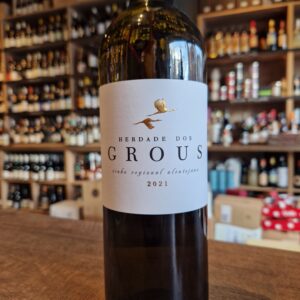 Created from scratch in the Alentejo landscape, you will find Herdade dos Grous. In Albernoa, 17 km from Beja, Herdade dos Grous brings together the production of wine, livestock, rural tourism and wine tourism. Alentejo, Portugal’s largest province holds the traditional Portuguese charm and a Moorish heritage, which can be seen in all its architecture. Its Continental climate with Mediterranean influences, offers ideal conditions for the production of fantastic wines and extremely high quality regional products. The establishment of the estate and the cultivation of the vines (1987), as well as the design of a state-of-the-art wine cellar (built in 2005) are all based on the latest findings in high-end viticulture. ’Herdade dos Grous’ represents the current pioneering spirit of Portugal’s wine-growing business like no other estate. We recommend serving this wine with seafood, poultry or pasta carbonara. Ideal serving temperature is 10 to 12°C
Created from scratch in the Alentejo landscape, you will find Herdade dos Grous. In Albernoa, 17 km from Beja, Herdade dos Grous brings together the production of wine, livestock, rural tourism and wine tourism. Alentejo, Portugal’s largest province holds the traditional Portuguese charm and a Moorish heritage, which can be seen in all its architecture. Its Continental climate with Mediterranean influences, offers ideal conditions for the production of fantastic wines and extremely high quality regional products. The establishment of the estate and the cultivation of the vines (1987), as well as the design of a state-of-the-art wine cellar (built in 2005) are all based on the latest findings in high-end viticulture. ’Herdade dos Grous’ represents the current pioneering spirit of Portugal’s wine-growing business like no other estate. We recommend serving this wine with seafood, poultry or pasta carbonara. Ideal serving temperature is 10 to 12°C -
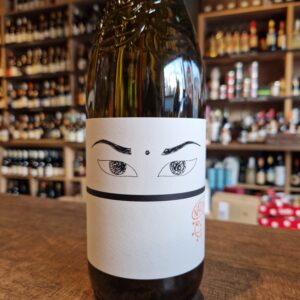 Nat Cool is naturally “cool and funky”. It represents an innovative concept initiated by Niepoort, in which various producers came together to create light, easy-to-drink wines. In the Vinho Verde region, we produced a wine typical of the region – a wine which references the “cloudy” wines of the past which were bottled with some residual sugar and fine lees, and therefore re-fermented in the bottle. Welcome to the Nat Cool world! This white wine was produced using a minimal intervention winemaking approach and is naturally turbid as it fermented in the bottle. It is intentionally not clarified and its aromas are reminiscent of the wines that used to be produced in the Vinho Verde region long ago. This is an intentionally uncomplicated wine: lightly shake the bottle before opening and enjoy with traditional Portuguese snacks!
Nat Cool is naturally “cool and funky”. It represents an innovative concept initiated by Niepoort, in which various producers came together to create light, easy-to-drink wines. In the Vinho Verde region, we produced a wine typical of the region – a wine which references the “cloudy” wines of the past which were bottled with some residual sugar and fine lees, and therefore re-fermented in the bottle. Welcome to the Nat Cool world! This white wine was produced using a minimal intervention winemaking approach and is naturally turbid as it fermented in the bottle. It is intentionally not clarified and its aromas are reminiscent of the wines that used to be produced in the Vinho Verde region long ago. This is an intentionally uncomplicated wine: lightly shake the bottle before opening and enjoy with traditional Portuguese snacks! -
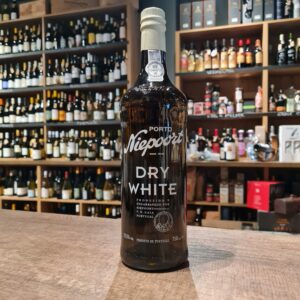 Niepoort is a Portuguese winery that was founded in 1842. It is currently run by Dirk Niepoort, fifth generation of the family it is named after. They use traditional Portuguese techniques such as grape treading, fermentation in cement tanks or aging in pipes, 550-litre port-aging barrels, whilst also using new technologies that ensure the grapes are handled with care. The winery has vines in different locations, some of which are over 100 years old, and an aging cellar in the town of Vila Nova de Gaia. The Niepoort Dry White vines have an average age of 30 years old and are planted in shale soils. The planting density of the plots ranges from 4,000 to 6,000 plants per hectare and the harvest is carried out manually to take the best care of the grapes. Serve as an aperitif, but it also goes down a treat as a dessert wine or simply on its own at the end of a meal
Niepoort is a Portuguese winery that was founded in 1842. It is currently run by Dirk Niepoort, fifth generation of the family it is named after. They use traditional Portuguese techniques such as grape treading, fermentation in cement tanks or aging in pipes, 550-litre port-aging barrels, whilst also using new technologies that ensure the grapes are handled with care. The winery has vines in different locations, some of which are over 100 years old, and an aging cellar in the town of Vila Nova de Gaia. The Niepoort Dry White vines have an average age of 30 years old and are planted in shale soils. The planting density of the plots ranges from 4,000 to 6,000 plants per hectare and the harvest is carried out manually to take the best care of the grapes. Serve as an aperitif, but it also goes down a treat as a dessert wine or simply on its own at the end of a meal -
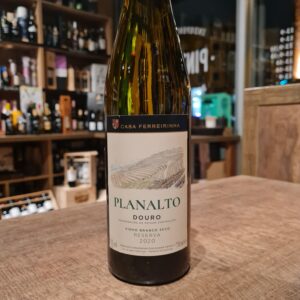 Planalto is one of the biggest references of white wine in the Douro Demarcated Region, fruit of the in-depth studies carried out over the years, the careful choice of the grape varieties that compose it and the use of the best winemaking technology in its production. This white blend comes from high-altitude vineyards above the river Douro. The soil in the Douro Valley is schistous; a slate-like metamorphic rock that fractures vertically - allowing vine roots to dig deep to access water and nutrients to sustain them through the hot Douro summers. The poor quality of the soil forces the grapes to produce low yields of grapes with a great concentration of flavour. The grapes were harvested by hand and were selected for their balance between flavour intensity and freshness. Ideal to accompany fish, seafood and white meat dishes.
Planalto is one of the biggest references of white wine in the Douro Demarcated Region, fruit of the in-depth studies carried out over the years, the careful choice of the grape varieties that compose it and the use of the best winemaking technology in its production. This white blend comes from high-altitude vineyards above the river Douro. The soil in the Douro Valley is schistous; a slate-like metamorphic rock that fractures vertically - allowing vine roots to dig deep to access water and nutrients to sustain them through the hot Douro summers. The poor quality of the soil forces the grapes to produce low yields of grapes with a great concentration of flavour. The grapes were harvested by hand and were selected for their balance between flavour intensity and freshness. Ideal to accompany fish, seafood and white meat dishes. -
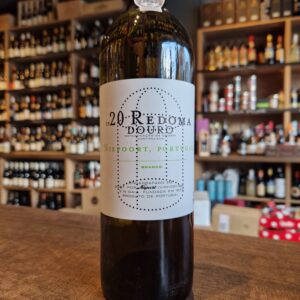 This oaky white will appeal to Graves or Burgundy lovers. The grapes used for the Redoma Branco originate from old vines growing on the right bank of the Douro River, at an altitude of between 400 and 600 metres. These vines predominantly grow in mica-schist soils, which, in combination with the complexity of the various grape varieties typical of the Douro region, create delicate wines full of freshness and minerality. Food suggestions-Oysters, oven-baked fish, poultry and other white meats. Vegetarian options: dishes based on root vegetables (turnips, sweet potato, beetroot), Caesar salad, cheese.
This oaky white will appeal to Graves or Burgundy lovers. The grapes used for the Redoma Branco originate from old vines growing on the right bank of the Douro River, at an altitude of between 400 and 600 metres. These vines predominantly grow in mica-schist soils, which, in combination with the complexity of the various grape varieties typical of the Douro region, create delicate wines full of freshness and minerality. Food suggestions-Oysters, oven-baked fish, poultry and other white meats. Vegetarian options: dishes based on root vegetables (turnips, sweet potato, beetroot), Caesar salad, cheese. -
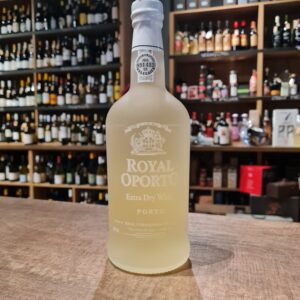 The Port is by difinition, generous and full-bodied wine, produced in the region Douro- the demarcated region of the world's oldest wines. Made from grapes traditionally used in the region, its wine making process is characterized by adding brandy to the wine in full fermentation. This type of port that inspires moments and new forms of consumption, which we recommend be served as Port Tonic. Classic serving would be as a chilled aperitif, but also you could be adventurous and make a ''Caipi Royal'' or just serve it on the rocks with an orange slice.
The Port is by difinition, generous and full-bodied wine, produced in the region Douro- the demarcated region of the world's oldest wines. Made from grapes traditionally used in the region, its wine making process is characterized by adding brandy to the wine in full fermentation. This type of port that inspires moments and new forms of consumption, which we recommend be served as Port Tonic. Classic serving would be as a chilled aperitif, but also you could be adventurous and make a ''Caipi Royal'' or just serve it on the rocks with an orange slice. -
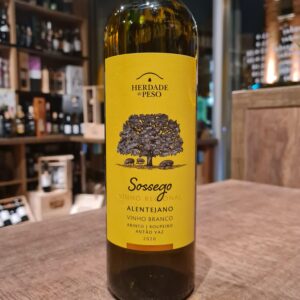 Sogrape Vinhos has been investing in the classic winegrowing regions of Portugal since it was set up in 1942. With a strong presence in the regions of Dão, Douro and (MInho) Vinhos Verdes, their entrance into the Alentejo — the winegrowing region with the highest growth rate in the country — was a natural step. Herdade do Peso Sossego Branco offers the authenticity and immediate passion of Alentejo flavors in a refreshing and aromatic wine. Herdade do Peso is the brand that revitalizes the deepest essence of the region, brought to the surface by the science and know-how of Sogrape Vinhos. The result is the production of exuberant and attractive wines, whose flavors, aromas and colors remind us of life at its best, just like the region where they are born. Sossego White is a refreshing wine that is full of flavour, perfect when served on its own or as na aperitif. It is an excellent accompaniment to various fish dishes, white meats and a variety of salads.
Sogrape Vinhos has been investing in the classic winegrowing regions of Portugal since it was set up in 1942. With a strong presence in the regions of Dão, Douro and (MInho) Vinhos Verdes, their entrance into the Alentejo — the winegrowing region with the highest growth rate in the country — was a natural step. Herdade do Peso Sossego Branco offers the authenticity and immediate passion of Alentejo flavors in a refreshing and aromatic wine. Herdade do Peso is the brand that revitalizes the deepest essence of the region, brought to the surface by the science and know-how of Sogrape Vinhos. The result is the production of exuberant and attractive wines, whose flavors, aromas and colors remind us of life at its best, just like the region where they are born. Sossego White is a refreshing wine that is full of flavour, perfect when served on its own or as na aperitif. It is an excellent accompaniment to various fish dishes, white meats and a variety of salads.


